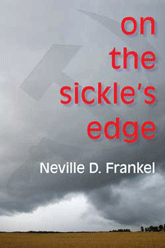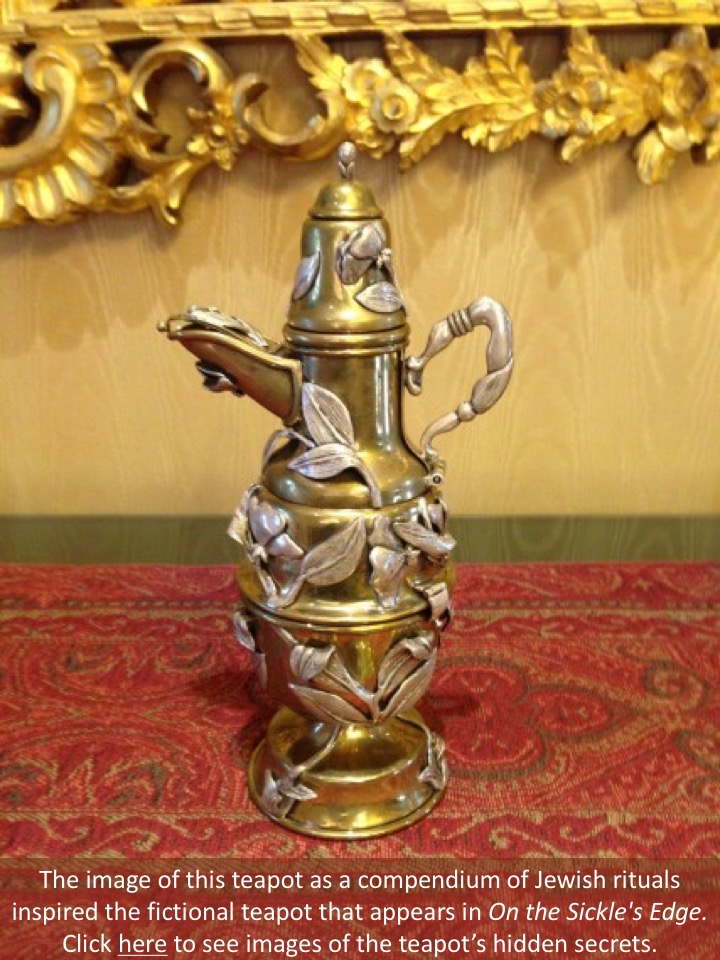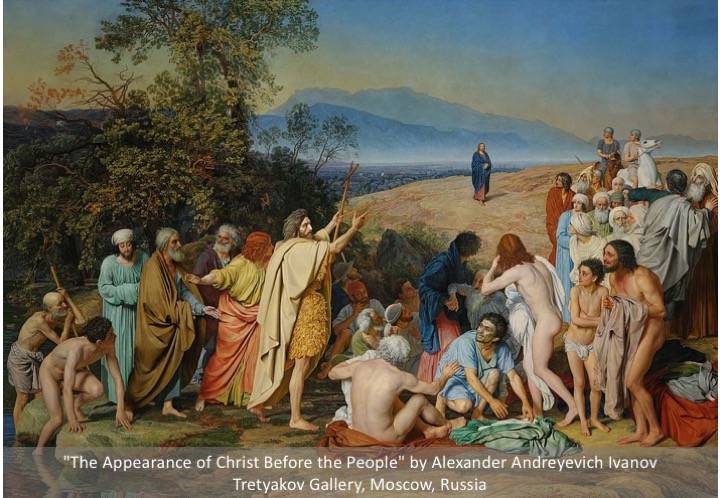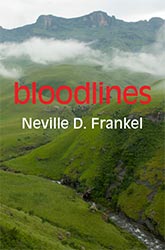Study Guide Questions
Study Guide Questions On the Sickle’s Edge
 What is the effect of revealing the story through the narrative of multiple characters? Did you relate to one of the narrators more than others?
What is the effect of revealing the story through the narrative of multiple characters? Did you relate to one of the narrators more than others?- Many of the characters suffer great losses. How do these losses impact their worldview and actions over the course of the story?
- To some extent, we are all shaped by the political and economic times in which we live. In what way do political, economic and social circumstances affect the lives and identity of the three principal characters in the book — Lena, Darya and Steven?
- A key theme is the secrets various characters keep. What are the consequences — for each individual, their descendants and loved ones — of keeping secrets? Of revealing them?
 How does the mysterious teapot become a metaphor for the secrets passed from one
How does the mysterious teapot become a metaphor for the secrets passed from one
generation to another? What is Steven’s role in saving the teapot from destruction? Given his character, in what ways is that an appropriate role for him to play?- Art and painting figure prominently in the story, especially in the lives of Lena, Vasily and Steven. How does art manifest itself as a saving grace in the lives of these characters? Are there times when art fails to provide them a refuge?
- This book has been called a “feminist novel” because of its many strong female characters. Do you agree? Why or why not?
- Lena says, “Boys want to grow up to be heroes. Girls want to grow up to be caregivers.” In what ways do the characters in the book adhere to or deviate from these gender roles? In your own life experience, is this true? How so?
 On the Sickle’s Edge is sometimes regarded as a “coming of age story” in the case of the character, Steven Green. What events in the book push Steven to evolve? When he goes to Russia to rescue Darya and her children, what are the reasons that motivate him to act?
On the Sickle’s Edge is sometimes regarded as a “coming of age story” in the case of the character, Steven Green. What events in the book push Steven to evolve? When he goes to Russia to rescue Darya and her children, what are the reasons that motivate him to act?- We learn a great deal from family letters in the book. Is this narrative device effective? Why or why not?
- Do you think Esther’s decision to change their family’s identity was a wise one? Why or why not?
- Why does Lena’s daughter, Klara, run away from home? Could this have been avoided?
- How does Lena’s experience with her daughter impact the way she raises her granddaughter Darya?
- Explore the interplay between Darya’s romantic relationships and her sense of self. Why is she initially attracted to Grigory Yanov? What drives her to finally see him for what he is?
- Why did Darya wait so long to leave Russia — and once safely in the U.S., why does she hesitate to pursue her romance with Steven?
- Lena says she thinks “having too much freedom makes people sloppy.” What does she mean by that? Do you agree?
- What scenes were most vivid or moving for you? What did you feel?
- Several characters must make decisions that could put themselves or their loved ones at risk: Esther and Isaak concealing their family’s Jewish identity; Darya betraying her husband; Nikolai living as a gay man in the Soviet Union. What other examples did you notice? How would you have responded in their situation?
- Did the book give you a better understanding of life in 20th-century Russia and the Soviet Union? Life in late 19th century Latvia? In what ways?
- What will you remember most about On the Sickle’s Edge?
- Do any of the themes in the book have relevance today? Why or why not?
Save
Save
 Study Guide Questions Bloodlines
Study Guide Questions Bloodlines
- Was Lenny’s decision to leave South Africa a good one? Why?
- Michaela was given several opportunities to join Lenny and Steven in the United States. Do you think her decision to stay in South Africa was the right choice? Why?
- In what way is Steven’s family life as an adult a reaction to his experiences as a young boy?
- Of the secrets Lenny keeps from Steven, which one is he most ashamed of? How does Lenny’s secrecy shape Steven’s responses to the world?
- How do the relationships with the men in Michaela’s life (her father, Lenny, Mandla, Andrew) affect her development as a character?
- Michaela’s Jewish parents are politically opposed to apartheid. How do their attitudes affect Michaela’s trajectory in life? How does their ideology differ from the practical advice they give their daughter?
- Michaela’s grandmother, Rachael, comes from a traditional Jewish background in Eastern Europe. How does the advice she gives reflect her own values, and how does it impact Michaela’s life decisions?
- In what ways are Michaela and Steven’s wife, Dariya, kindred spirits?
- In order to get through life, we are sometimes lucky enough to benefit from the wisdom of a mentor. Who are the key mentors in the book, and how do they shape the lives of the characters?
- How does the loss of Thulani and Simon change the dynamics of the interaction among Miriam, Mandla and Michaela?
- Can you point to events that trigger changes in Michaela’s character as the story progresses? Are there aspects of her personality that never change? How is this manifested in the book?
- Bloodlines is told from the perspectives of four characters—Steven, Lenny, Michaela and Mandla. What is the impact of telling the story from these diverse viewpoints?
- In your view, what are the major character strengths in Michaela, Lenny, Steven and Mandla? What are their major flaws?
- In their choice to be together, Mandla and Michaela signal a desire to transcend the limitations of the regimented world they live in—the South Africa of black versus white; African versus Western culture; Zulu versus Jewish traditions. What actions by these characters show that they were unable to completely achieve this goal?
- Is Steven a main character in the book? What role does he play in the story?
- As Michaela and Lenny look back on their lives from the perspective of old age, what do you think each of them would consider their greatest loss or regret?
- What can you say about the nature of redemption in this book? Does Steven eventually find redemption? Would you have ended the story differently?
- Bloodlines centers around loss, the impossibility of reconciliation and the dangers of family secrets. It also contains theme of love, forgiveness and family values. How do these disparate themes coexist?
- How does the landscape of South Africa take on a character of its own in the novel?
- In what ways does Bloodlines change your perception of South Africa’s history?
Save
